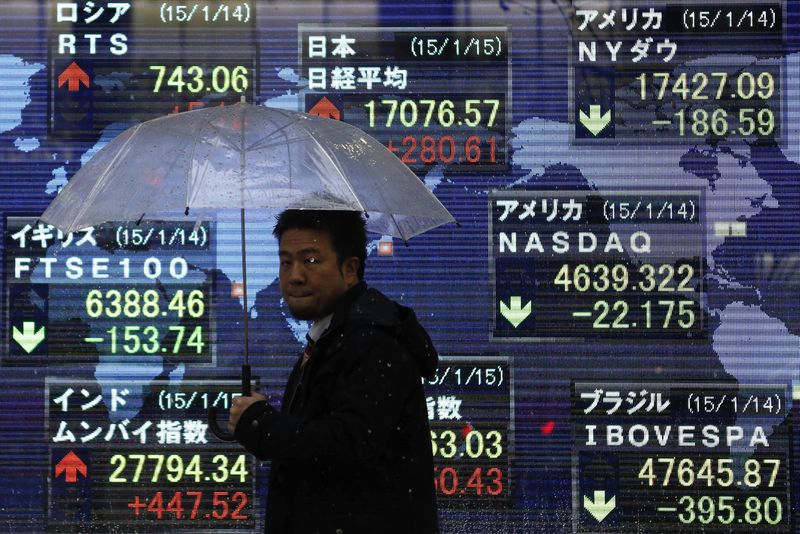This post was originally published on this site

Investing.com – Asia Pacific stocks were mostly down on Wednesday morning, with U.S. equity futures also on a downward trend. Sovereign bonds also continued a selloff as high inflation, a hawkish U.S. Federal Reserve and China’s COVID-19 outbreak continue to be on investors’ radars.
Japan’s Nikkei 225 gained 0.49% by 10:37 PM ET (2:37 AM GMT). Trade data released earlier in the day showed that exports grew 14.7% year on year and imports grew 31.2% year on year in March 2022. The trade balance contracted to JPY412.4 billion ($3.21 billion) and the adjusted trade balance contracted to JPY900 billion.
South Korea’s KOSPI was down 0.35% while in Australia, the ASX 200 was up 0.34%.
Hong Kong’s Hang Seng Index was down 0.39%.
China’s Shanghai Composite fell 0.59% and the Shenzhen Component fell 0.82%. The People’s Bank of China kept its loan prime rates (LPRs) steady, with the one-year LPR at 3.7% and the five-year LPR at 4.6%.
Nasdaq 100 contracts fell about 1% following Netflix Inc.’s (NASDAQ:NFLX) slump due to lower-than-expected subscriber numbers. U.S. Treasury yields rose as investors ramped up bets of sharp Fed policy tightening to curb high inflation, with 10-year real yields turning positive for the first time since 2020.
The tighter financial conditions could also hurt demand for assets such as equities, with Chicago Fed President Charles Evans warning that interest rates will probably exceed the neutral level.
Evans, along with San Francisco Fed President Mary Daly, is also due to speak later in the day. Fed Chairman Jerome Powell and European Central Bank President Christine Lagarde will speak at an International Monetary Fund event on Thursday, while Bank of England Governor Andrew Bailey will speak a day later.
The Fed also releases its Beige Book later in the day, with the eurozone consumer price index following on Thursday, and the eurozone, French, German, and British purchasing managers indexes following on Friday.
The International Monetary Fund (IMF) cut its global growth outlook amid high inflation, Russia’s invasion of Ukraine on Feb. 24, and China’s COVID-19 outbreak.
Stock and bond markets are vulnerable because the Fed and other central banks could tighten monetary policy more than anticipated to contain inflation, IMF economic counsellor Pierre-Olivier Gourinchas said in a blog post on Tuesday.
“It takes time for the market to recognize and then respond to higher inflation,” Dalton Investments LLC chairman Belita Ong told Bloomberg.
“My concern is that we benefited from low-interest rates during an era of peace, no wars, and during an era of very significant globalization. Both of those trends are now reversing.”
Investors now await earnings from American Express (NYSE:AXP), China Telecom (HK:0728), and Tesla Inc. (NASDAQ:TSLA). They will also keep an eye on the presidential debate between Emmanuel Macron and Marine Le Pen, taking place later in the day ahead of the runoff vote on Apr. 24.


